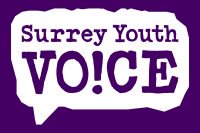Ableism, Stigma and Discrimination: The Power of Language

Lived experiences, testimonies, and preferred terminology from young people with additional needs and disabilities living and accessing services in Surrey, UK.
Written by Rowan Foster, ATLAS member.
Navigating the world as a disabled person
One of the most difficult parts of experiencing disability is trying to communicate and relate it to an 'able-bodied' world. In so many ways, it's a world that just isn't designed for us.
But it's a world that we have no choice but to participate in, and so it's vital that as both professionals and people, we promote inclusion and make spaces truly accessible and safe.
Hopefully, you agree with me in theory. But in practice, this is much harder to implement. We can't change every part of the system, but one of the most impactful ways you can change your approach and help make a space safe is to examine and change the way you talk about disability.
When, as a young person, I walk (or wheel) into your place of work, the way you navigate conversation around my disability tells me a huge amount about your approach.
This isn't just about your knowledge, it's about your language. It becomes clear very quickly when someone is open-minded and will listen to me, and when I'm hitting a brick wall. This completely changes my response and engagement.
Disability is not a bad word
Professionals will often say to me 'well, I don't really think of you as disabled.' This comes from the idea that disability is a bad word, when it isn't, it's a descriptor.
You wouldn't say to me 'well, I don't really think of you as someone with brown hair'. And when someone's said that to me, I instantly know that even if they've got qualifications around additional needs, they don't really understand my experience. Because for me, disability is a powerful word.
It helps me understand how I navigate the world differently, it gives me an identity and a community from which I can seek support, and it explains the difficulties I face.
When someone won't associate that word with me, they distance me from all those wonderful things.
This goes far beyond one-to-one conversations. When I open up a website, and I see the term 'special needs', there are experiences and difficulties I associate that word with as someone who has faced discrimination and lack of access as a disabled person. It's a commonly used word, so I try to just brush it off, but those ideas will stick in my mind for the rest of my navigation through the website.
First impressions matter, and when yours tells me that you don't keep up to date with disability, I will bear that in mind for the rest of my interactions with you.
Terminology around disability
When interacting with services, if I see or hear 'additional needs and disabilities', or any other word or phrase that is most appropriate, I notice that too. It's a green flag, and that green flag will stay with me in my perception of you and your team.
It's like a little sign saying 'hey! We've done our research!' and that tells me that I'm far more likely to be accessing a safe space where my disability will be respected.
When you change the language you use around disability, you show me that you care enough about my additional needs and disabilities to make that change.
When you put that effort in, I appreciate it and feel validated by it, and it makes me want to work harder to engage with and relate to you.

